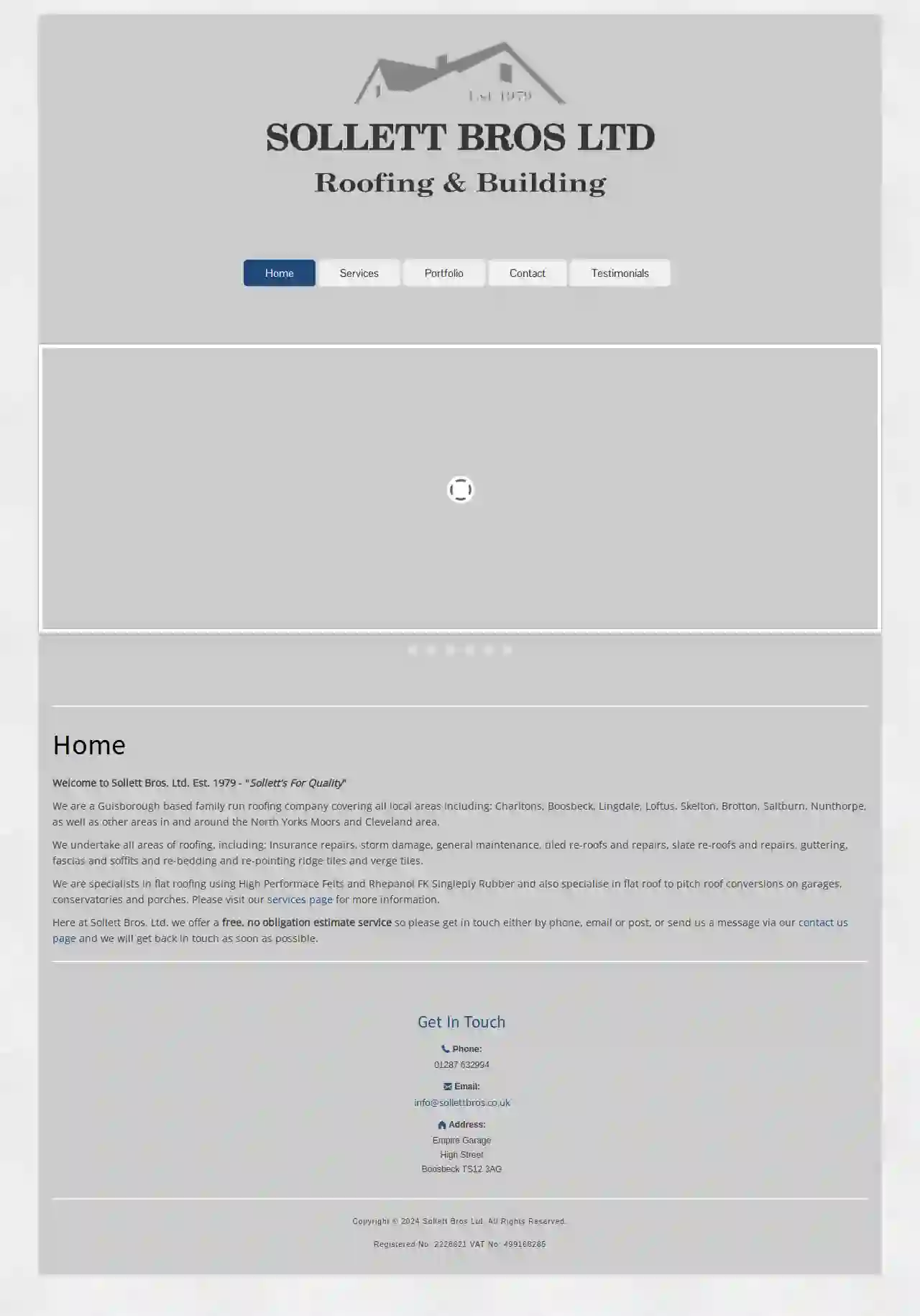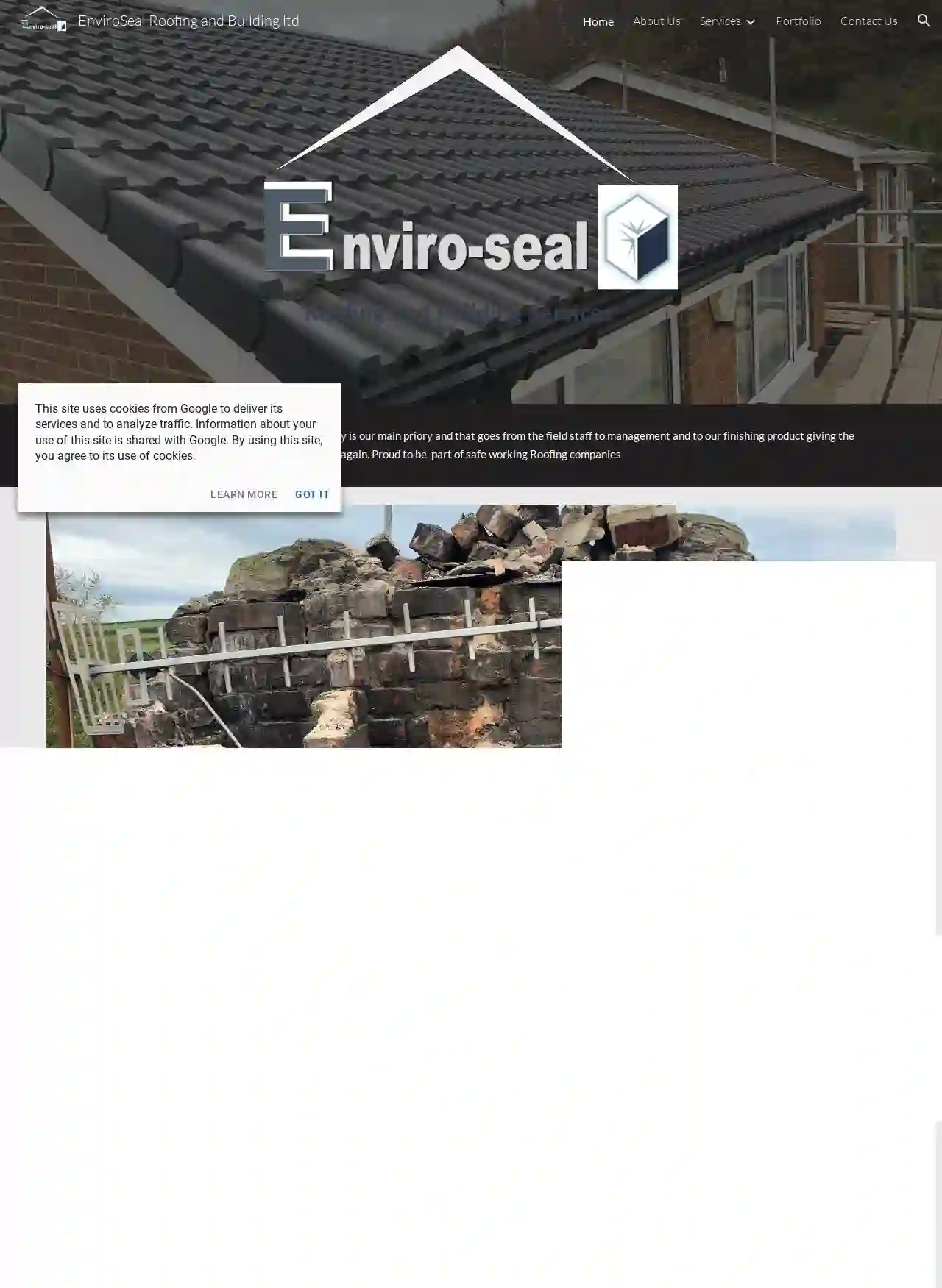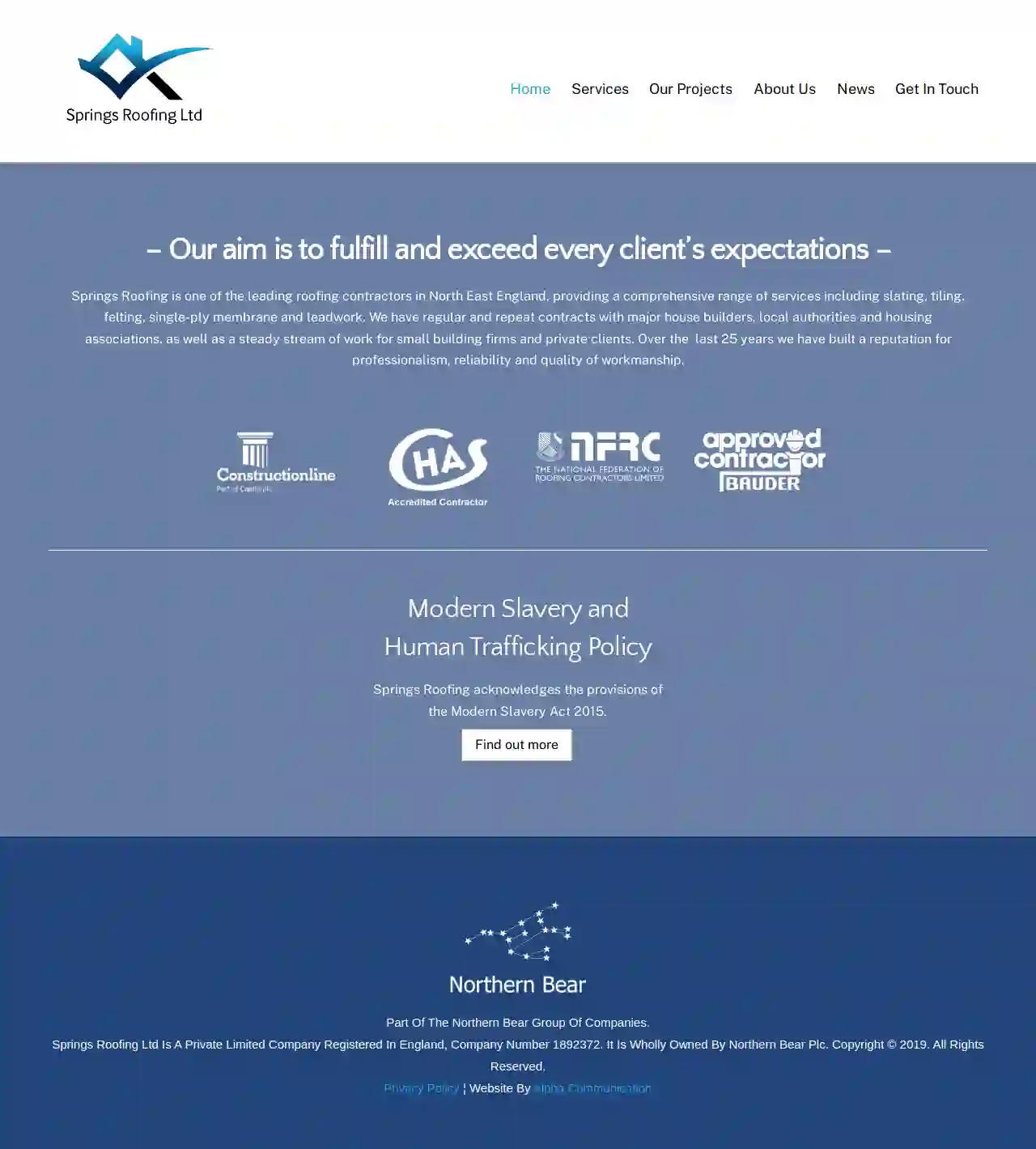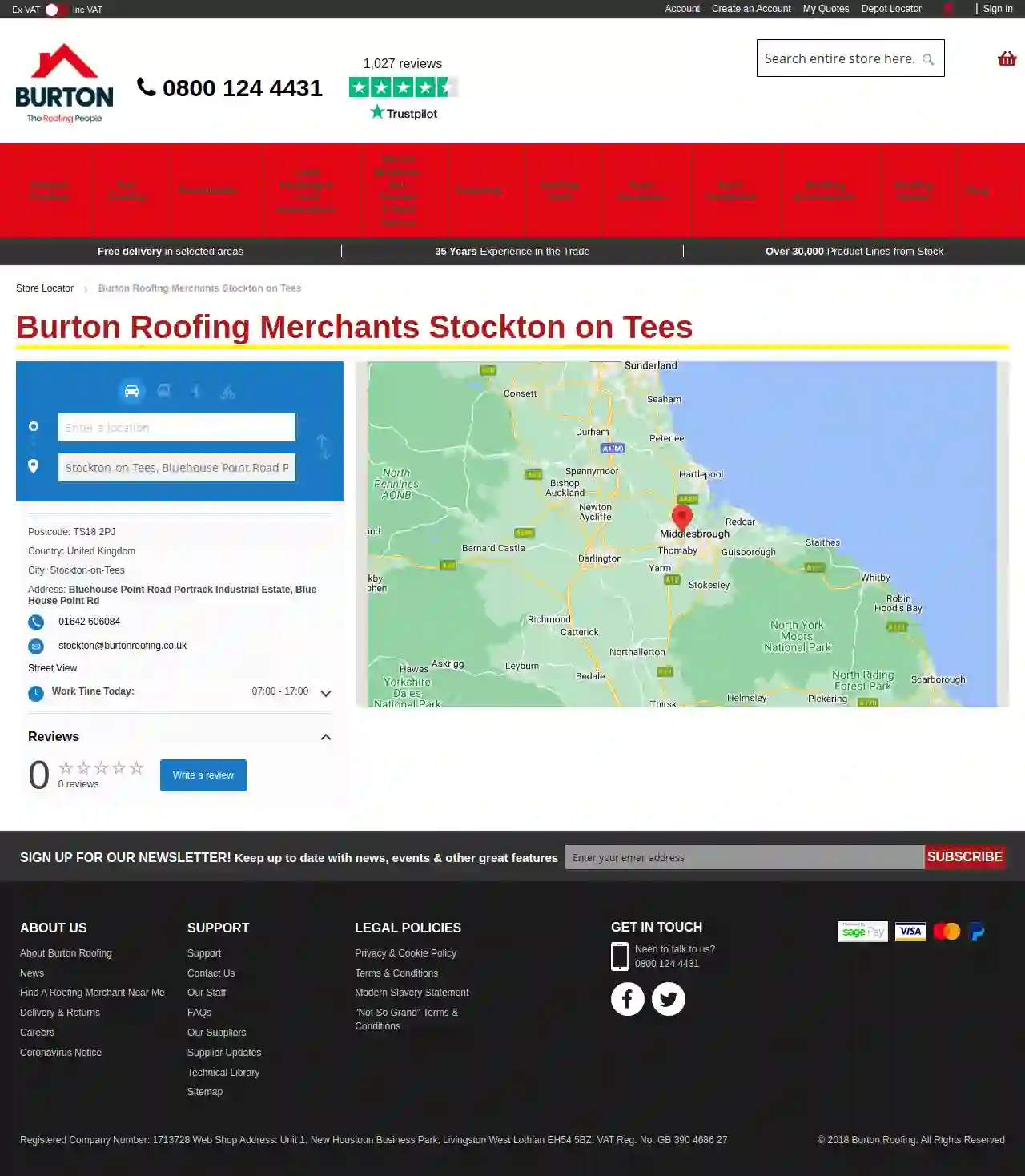Roofing Companies Nunthorpe
Best Roofing Service in Nunthorpe
Get up to 3 Roofing Company quotes for your project today! Compare profiles, reviews, accreditations, portfolio, etc... and choose the best deal.

Approved Roofers Ltd
32 reviewsSunderland, GBApproved Roofers is a leading directory for Roofers Nationwide. We do insurance checks on every roofer that joins us. You can leave reviews and read what others have said. Work with one of our Approved Roofers today.
- Services
- Why Us?
- Testimonials
- Gallery
Get Quote
Beechwood Roofing
Unit 10, Acklam Industrial Estate, Middlesbrough, TS5 7AA, GBBeechwood roofing was established in 1989 and have built up a very high reputation for Quality Workmanship in the Domestic and Commercial Industry. We are a roofing company based in Acklam in Middlesbrough. Beechwood Roofing undertakes all aspects of Roofing including Slating , Tiling , Ridging, Converting flat roofs to pitched roofs , Fascias , Soffits , Gutters and Velux Skylights. We are an Approved company with Iko , Icopal , Bauder and Index. We are also Approved by Sarna , Alwitra , Protan for single ply systems. All of our Highly Trained Team are CSCS Registered and our Tradesman are CITB Trained. Beechwood Roofing prides itself on 100% customer satisfaction and Quality Workmanship. A full list of References is available by emailing me at [email protected]
- Services
- Why Us?
- Accreditations
- Our Team
- Testimonials
- Gallery
Get Quote
Sunderland Roofs
Sunderland, GBSunderland Roofs is a professional roofing company with over 20 years of experience delivering high-quality workmanship and personal service. We provide a range of roofing services, including flat roof repairs, flat roof construction, replacing damaged roof tiles, leaking roofs, re-pointing mortar, gutter repairs, chimney repairs and re-pointing, and asbestos removal. We also offer emergency roofing services and are available 7 days a week. Our team is experienced, trained, and specialist in roofing, and we strive for 100% customer satisfaction. We cover Sunderland and surrounding areas, including Monkwearmouth, Pallion, Southwick-on-Wear, Southwick, Ryhope, New Silksworth, Silksworth, Whitburn, East Boldon, Marsden, Harton, Cox Green, Old Penshaw, Painshaw, Penshaw, Herrington, New Herrington, Boldon, West Boldon, and surrounding areas.
- Services
- Why Us?
- Our Team
- Testimonials
- Gallery
Get Quote
Sollett Bros Ltd
4.37 reviewsHigh Street, Empire Garage, Boosbeck, TS12 3AG, GBWelcome to Sollett Bros. Ltd. Est. 1979 - "Sollett's For Quality". We are a Guisborough based family run roofing company covering all local areas including: Charltons, Boosbeck, Lingdale, Loftus, Skelton, Brotton, Saltburn, Nunthorpe, as well as other areas in and around the North Yorks Moors and Cleveland area. We undertake all areas of roofing, including: Insurance repairs, storm damage, general maintenance, tiled re-roofs and repairs, slate re-roofs and repairs, guttering, fascias and soffits and re-bedding and re-pointing ridge tiles and verge tiles. We are specialists in flat roofing using High Performace Felts and Rhepanol FK Singleply Rubber and also specialise in flat roof to pitch roof conversions on garages, conservatories and porches. Please visit our services page for more information. Here at Sollett Bros. Ltd. we offer a free, no obligation estimate service so please get in touch either by phone, email or post, or send us a message via our contact us page and we will get back in touch as soon as possible.
- Services
- Why Us?
- Gallery
Get Quote
Trustmark Roofing and Building Ltd
441 reviewsSunderland, GBAs a local roofing contractor and expert building company, we’re here to offer you straightforward advice, solid workmanship, and sensible pricing. With our local North East roofers, you get high-quality workmanship and outstanding customer service that meets your needs without stretching your budget. The North East's Top Rated Roofer & Builder With over 20 years of experience, our North East roofing company is dedicated to providing high standards and quality North East roofing services. Whether our roofing contractors install brand-new work or do repair work, only top materials are used.If you need a roofer fast, you can trust us as your source for reliable roofing solutions. All roofing work is guaranteed for your complete peace of mind. Learn more about our company here.
- Services
- Why Us?
- Gallery
Get Quote
Enviro-Seal Ltd - Roofing & Building Services
51 reviewsGBEnviroSeal Roofing and Building ltd provides roofing and building services. Safety is our main priority, from our field staff to management and our finished product. We aim to give our customers a top-class service they can rely on. We are proud to be part of safe working roofing companies. Contact us for a free, no-obligation quote for your project and some of the most competitive roofing and building contractor prices in the North East, North West, Cumbria, Lake District, and of England and the United Kingdom.
- Services
- Why Us?
- Gallery
Get Quote- SK
SKN Building & Roofing Services
513 reviews1000 King St, Kitchener, N0L 1P0, GB- Services
- Why Us?
- Gallery
Get Quote 
Springs Roofing Ltd
3.312 reviewsGBSprings Roofing is a leading roofing contractor in North East England, renowned for its comprehensive range of services. For over 25 years, they've built a reputation for professionalism, reliability, and exceptional workmanship. Their expertise spans slating, tiling, felting, single-ply membrane, and leadwork, catering to a diverse clientele including major house builders, local authorities, housing associations, and private clients. Springs Roofing is committed to exceeding client expectations, delivering dependable, responsive, and cost-effective solutions. As part of the Northern Bear group, they leverage a strong team of over 60 roofing operatives, including time-served slaters and tilers, all equipped with CSCS cards and many holding NVQ level 2 or 3 in Slating and Tiling. Their ongoing training program ensures continuous skill development and upholds their commitment to quality.
- Services
- Why Us?
- Our Team
- Gallery
Get Quote
Burton Roofing Merchants - Stockton-on-Tees
4.593 reviewsBluehouse Point Road Portrack Industrial Estate, Blue House Point Rd, Stockton-on-Tees, TS18 2PJ, GBBurton Roofing Merchants is a leading supplier of roofing materials with over 35 years of experience in the trade. We offer a wide range of products from over 30,000 lines, all available from stock. Our team of fully trained staff are on hand to provide expert advice and support. We pride ourselves on our commitment to customer service and strive to provide a seamless experience for all our customers.
- Services
- Why Us?
- Gallery
Get Quote
Skylights Rooflight
522 reviewsGBWelcome to Sylights Rooflight! Skylights Rooflight specialise in supplying premium stock high quality triple glazed, self-clean, UV protected, thermal efficient skylights at trade prices throughout United Kingdom. What sets us apart from our competitors is, our base stock product comes with all the extra’s that are usually optional costed extra’s, but we offer these features at no extra cost and no additional lead time. In addition, our frameless stepped tripled glazed skylights are designed in a manner that offer uninterrupted views of the sky whereas most competitors skylights come with bulky internal and external frames. The standard triple glazed rooflight specification has the added benefit of noise reduction.This uniquecost-effective design and approach has lead Skylights Rooflight to become themarket leader in the industry.
- Services
- Why Us?
- Gallery
Get Quote
Over 12,314+ Roofers onboarded
Our roofing pros operate in Nunthorpe & surroundings!
Roofyng.co.uk has curated and vetted the Best Roofing Companies near Nunthorpe. Find a top & reliable contractor today.
Frequently Asked Questions About Roofing Companies
- Regular Inspections: Inspect your roof at least twice a year for signs of damage or wear and tear.
- Gutter Cleaning: Clean gutters and downspouts regularly to prevent clogs and ensure proper drainage.
- Tree Trimming: Trim overhanging branches to avoid damage from falling debris and reduce shade, preventing moss growth.
- Proper Ventilation: Ensure good attic ventilation to regulate temperature and moisture.
- Timely Repairs: Address any damage promptly to prevent escalation.
- Roof size and complexity
- Roofing material chosen
- Local labor costs
- Accessibility of the roof
- Removal of existing roofing
- Additional features (skylights, chimneys, etc.)
- Hot Climates: Opt for light-colored or reflective roofing materials to reduce heat absorption. Consider tile roofs for their thermal mass and heat resistance.
- Cold Climates: Ensure your roof has adequate insulation and ventilation to prevent ice dams and moisture buildup. Metal roofs can shed snow effectively.
- High-Wind Areas: Choose roofing systems with high wind ratings and properly installed hurricane straps or clips to enhance wind resistance.
- Areas with Heavy Rainfall: Ensure your roof has proper drainage and a waterproof membrane to prevent leaks.
How do I prevent roof damage?
What should I do with my old roof after replacement?
How much does a new roof cost in the UK?
How do I choose the right type of roof for my climate?
How do I prevent roof damage?
- Regular Inspections: Inspect your roof at least twice a year for signs of damage or wear and tear.
- Gutter Cleaning: Clean gutters and downspouts regularly to prevent clogs and ensure proper drainage.
- Tree Trimming: Trim overhanging branches to avoid damage from falling debris and reduce shade, preventing moss growth.
- Proper Ventilation: Ensure good attic ventilation to regulate temperature and moisture.
- Timely Repairs: Address any damage promptly to prevent escalation.
What should I do with my old roof after replacement?
How much does a new roof cost in the UK?
- Roof size and complexity
- Roofing material chosen
- Local labor costs
- Accessibility of the roof
- Removal of existing roofing
- Additional features (skylights, chimneys, etc.)
How do I choose the right type of roof for my climate?
- Hot Climates: Opt for light-colored or reflective roofing materials to reduce heat absorption. Consider tile roofs for their thermal mass and heat resistance.
- Cold Climates: Ensure your roof has adequate insulation and ventilation to prevent ice dams and moisture buildup. Metal roofs can shed snow effectively.
- High-Wind Areas: Choose roofing systems with high wind ratings and properly installed hurricane straps or clips to enhance wind resistance.
- Areas with Heavy Rainfall: Ensure your roof has proper drainage and a waterproof membrane to prevent leaks.